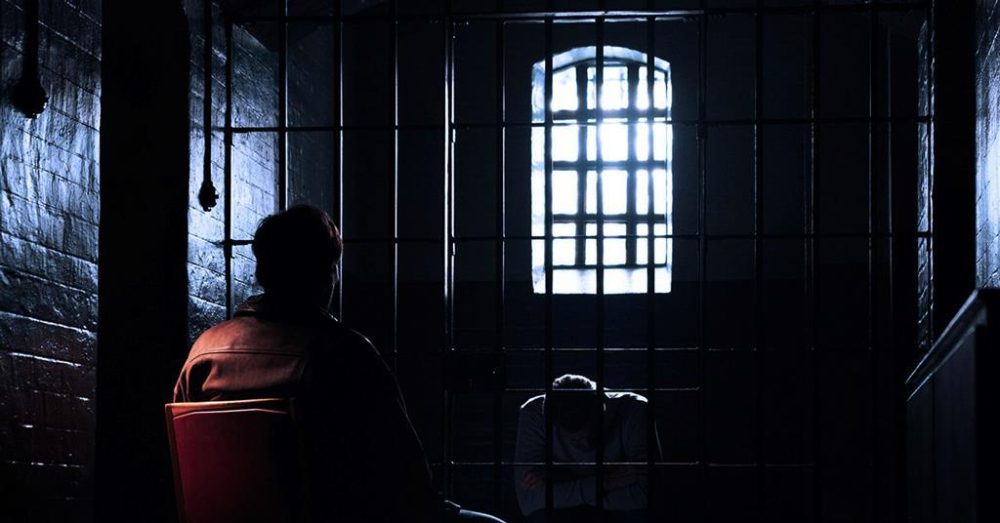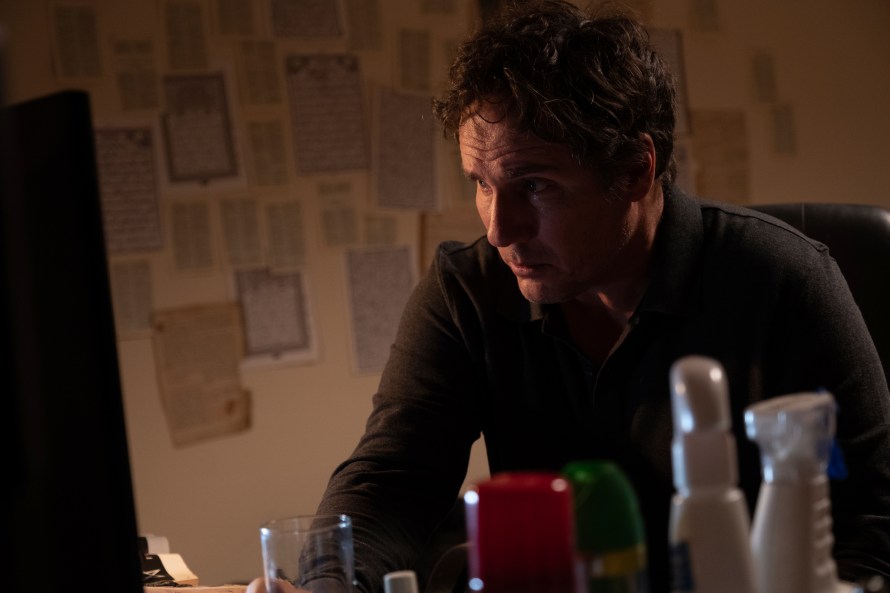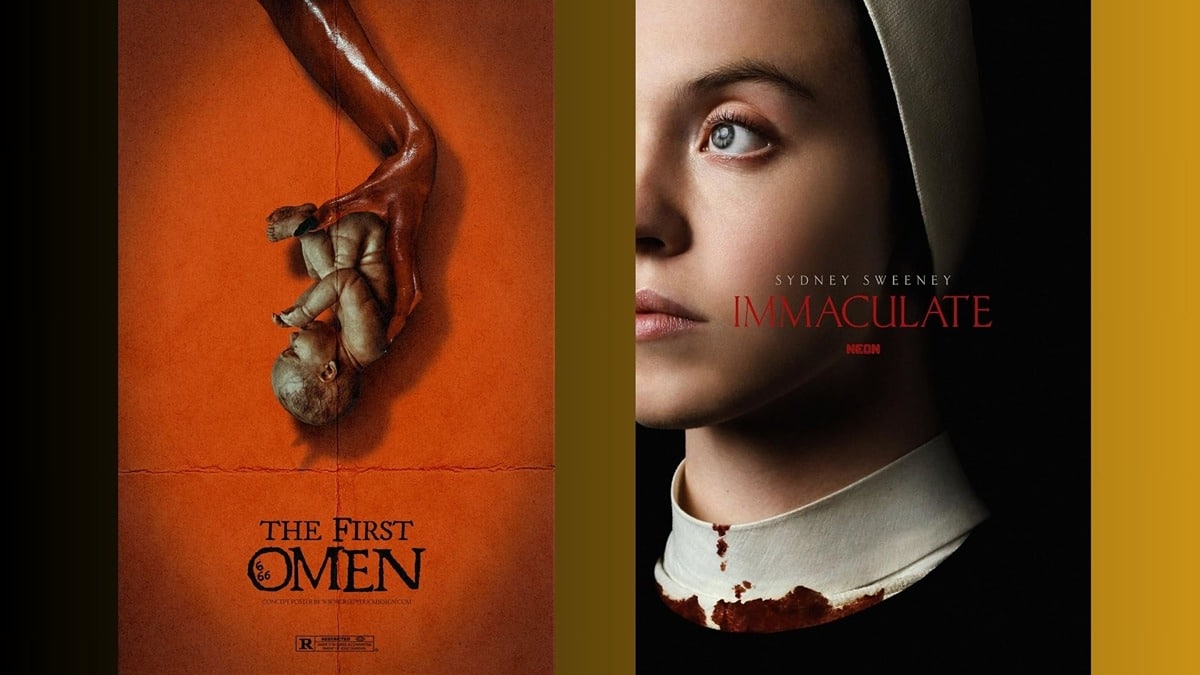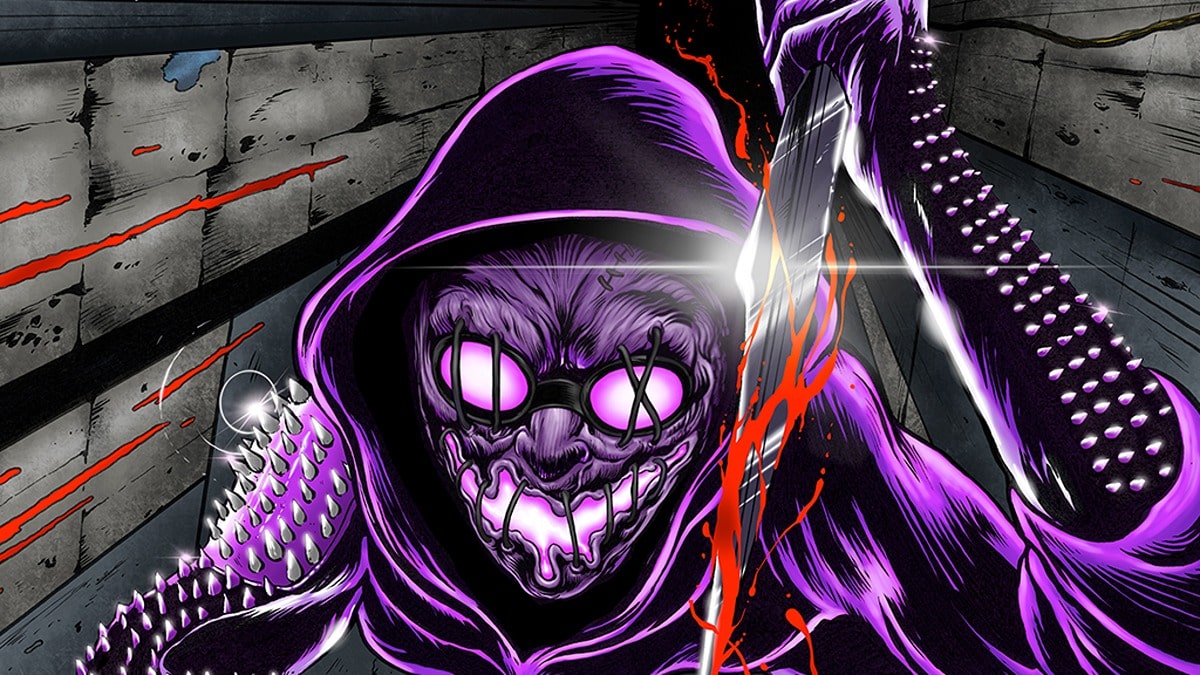
Adam Ethan Crow’s Lair is a movie that’s easy to love despite its shortcomings. Part of the reason why is its apparent lack of restraint when developing its scarier bits, which often veers into ideas that defy formula. There’s a playfulness to how it approaches the story’s sequence of events, how it creates an atmosphere of bubbling demonic activity, and how it sets up its jump scares. Sadly, it’s all executed to varying degrees of success. In spite of this, though, some of the movie’s ideas are strong enough to produce a memorable yet inconsistent viewing experience.
Lair follows Steven Caramore (played by Corey Johnson), a man with a history of supernatural investigations that’s faced with the problem of trying to prove his friend was under the influence of demonic possession when he murdered his entire family. Caramore sets up a controlled environment experiment in which he rents a room to an unsuspecting family and then subjects them to several haunted objects to see which one is actually possessed by something evil. The haunted object is revealed fairly quick, and then the horror begins.
The family that falls prey to Caramore’s sinister but well-intentioned project is composed by a strong set of characters that embody key thematic problems the movie tries to offer commentary on. One of those problems relates to the difficulties of keeping a dysfunctional family together as one of the parents transitions from a failed heterosexual relationship into a new queer relationship.
One of the parents (played by Aislinn De’Ath), for instance, is a recent divorcee who got separated from the father of her two kids and is now attempting to get her daughters to accept her same sex partner (played by Alana Wallace). The demonic presence acts as a kind of stand-in for the struggles that come with the situation, namely the waning cohesiveness of the family.
It was refreshing to see the family carry a different perspective into the situation, especially since family hauntings within the horror genre tend to favor very traditional (and markedly Christian) portrayals of shared households. The change in dynamic felt genuine and honest and it raised the stakes for everyone trying to make it work.
Unfortunately, there’s not a lot of meat on that bone as director Ethan Crow, who also scripted the film, wanted the Caramore character to carry an equal amount of narrative weight throughout. The family’s emotional arc gets shortchanged here and never gets the chance to go deeper into the conflicts it establishes quite well.
The problem lies in that Ethan Crow’s insistence on giving Caramore so much screentime comes at the cost of leaving certain plot points in storytelling limbo. The whole part about gathering supernatural evidence to absolve someone of guilt had enough material for its own movie. This makes Lair’s biggest problem become painfully obvious: it’s basically two movies crammed into one, each locked in a struggle for supremacy over the final product.
Given this tug of war, the movie can come off as somewhat undercooked. Neither the family’s plight nor Caramore’s experiment gone wrong get the time they deserve to reach their true potential. Having said that, the script’s commitment to keeping with both arcs does allow for some great performances to play out, especially Corey Johnson’s as the sleazy paranormal investigator.
Johnson plays Caramore like a desperate conman that tries really hard to mask his fears under snarky remarks and classic sleazeball behavior. He’s the classic selfish character trope that only looks out for himself but always manages to possess that one ounce of empathy that keeps from being completely irredeemable.
And yet, Caramore never stops being a character you want to see more of, that you oddly care for. He’ll do enough to make you want to hate him, but the jittery energy behind his misguided attempt to prove the demon’s existence also makes him genuinely fascinating.
Johnson’s ability to make his character go from disgusting to vulnerable with the snap of a finger hinted at layers of personality I wish the movie would’ve explored more of. The script was just too busy juggling a whole other story at the same time to do so.
Lair can be both its own best friend and its own worst enemy. There’s a lot of good in the two story arcs vying for our attention, but the overall narrative would’ve benefited from allowing one of them to take charge while the other stuck to a supporting role. There are some clever scares and a few ideas here and there that keep the movie from buckling under its own weight, but it was the director’s decision to cram two movies with big ideas into one that kept it from becoming something entirely different.











